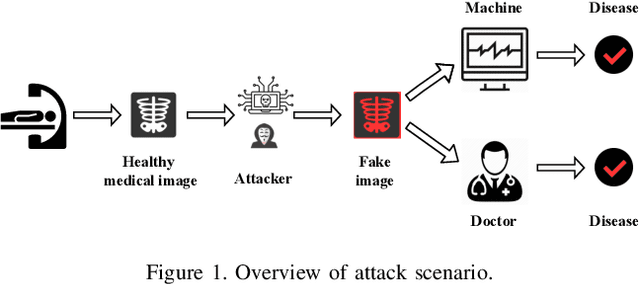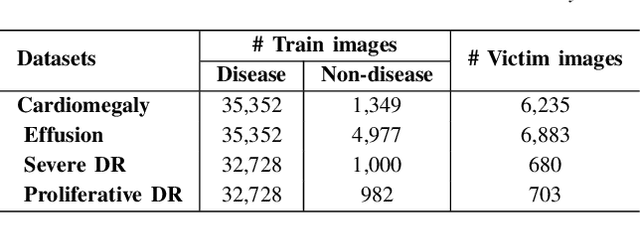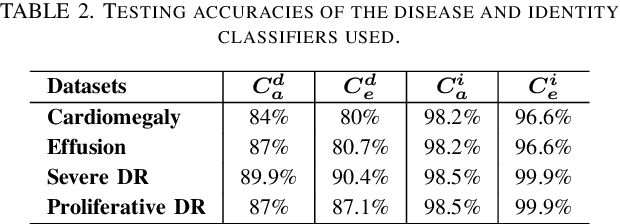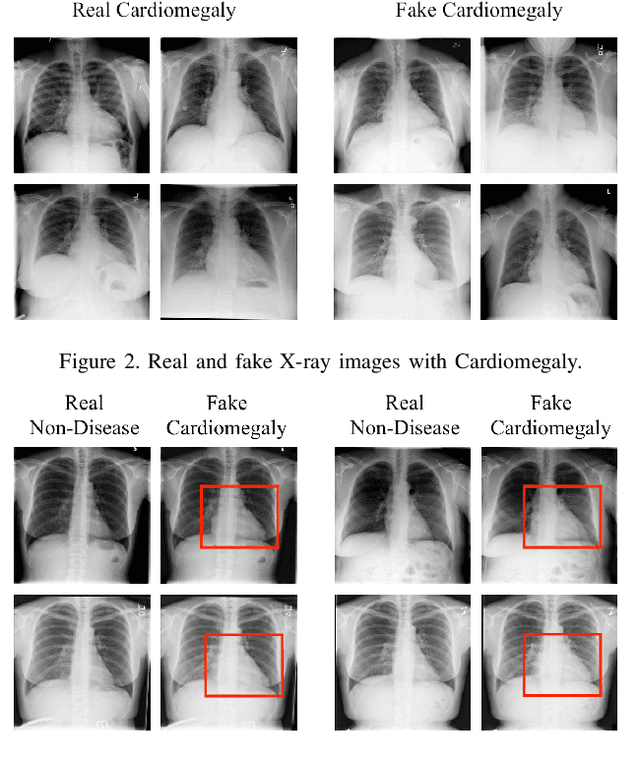Jekyll: Attacking Medical Image Diagnostics using Deep Generative Models
Paper and Code
Apr 05, 2021



Advances in deep neural networks (DNNs) have shown tremendous promise in the medical domain. However, the deep learning tools that are helping the domain, can also be used against it. Given the prevalence of fraud in the healthcare domain, it is important to consider the adversarial use of DNNs in manipulating sensitive data that is crucial to patient healthcare. In this work, we present the design and implementation of a DNN-based image translation attack on biomedical imagery. More specifically, we propose Jekyll, a neural style transfer framework that takes as input a biomedical image of a patient and translates it to a new image that indicates an attacker-chosen disease condition. The potential for fraudulent claims based on such generated 'fake' medical images is significant, and we demonstrate successful attacks on both X-rays and retinal fundus image modalities. We show that these attacks manage to mislead both medical professionals and algorithmic detection schemes. Lastly, we also investigate defensive measures based on machine learning to detect images generated by Jekyll.
 Add to Chrome
Add to Chrome Add to Firefox
Add to Firefox Add to Edge
Add to Edge